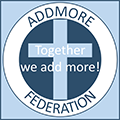EYFS 2022-2023
Our Vision
Here at Moreton Say, we are passionate that all children experience high quality and meaningful early years experiences and education, enabling them to develop a curiosity about the world around them, build positive relationships and become lifelong learners in a safe and stimulating environment. We ensure that every child makes progress in all areas of learning from their own unique starting point, becoming independent, inquisitive and happy learners who feel safe and included.
Our early year’s team recognise the value of ensuring our youngest pupils getting the best possible start in their educational journey. Therefore, we place high value upon ensuring our early year’s staff receive CPD to ensure that professional knowledge and needs are supported. Creating a nurturing environment with a shared thirst for knowledge.
Mrs Anna Greenway - Early Years Lead
Here at Moreton Say CE Primary School the children follow the statutory framework for the Early Years Foundation Stage (EYFS). The EYFS curriculum is split into seven key areas of learning which are:
- Personal, Social and Emotional Development
- Communication and Language
- Physical Development
- Literacy
- Mathematics
- Understanding the World
- Expressive Arts and Design.
The EYFS curriculum also has three ‘Characteristics of Effective Learning’ which are to promote, critical thinking, active learning and playing and exploring.
Progress Check at 2 Years Old
Before you child's 3rd Birthday, our Early Years Practitioners with carry out the early years foundation stage (EYFS) progress check at age 2. This check assists practitioners in early years to:
- review a child’s development and progress in the 3 prime areas of learning and development in the EYFS framework
- identify any areas of concern or additional development needs
- work with parents and other professionals to put in place appropriate support and intervention
The guidance used by practitionaers to inform, support and offers suggestions is called 'Progress Check at age 2'. Alongside this practitioners use the Development Matters document which sets out how children develop and learn.
What is the purpose of the check?
The progress check at age two has three main purposes
Partnership with parents
While practitioners and other professionals can support children’s development and wellbeing individually, they can achieve so much more by working together. ‘Parent’ is used throughout the document to refer to parents, carers and guardians.
Action for every child
Writing down observations and sharing reports do not help children. Practitioners need to listen to the child, talk with each other and then plan together. Working together can make a difference.
Early identification
Some children need extra help for a while as they grow and develop – for example, with their communication.
Other children may have long-term developmental needs. Some families may struggle and need support. Whatever the circumstances, sensitive early intervention can make a big difference. Children develop rapidly between the ages of two and three – practitioners need to be quick to support and identify help where it is needed.
Further information as to what you can expect in Early Years is included in the documents attached below.

